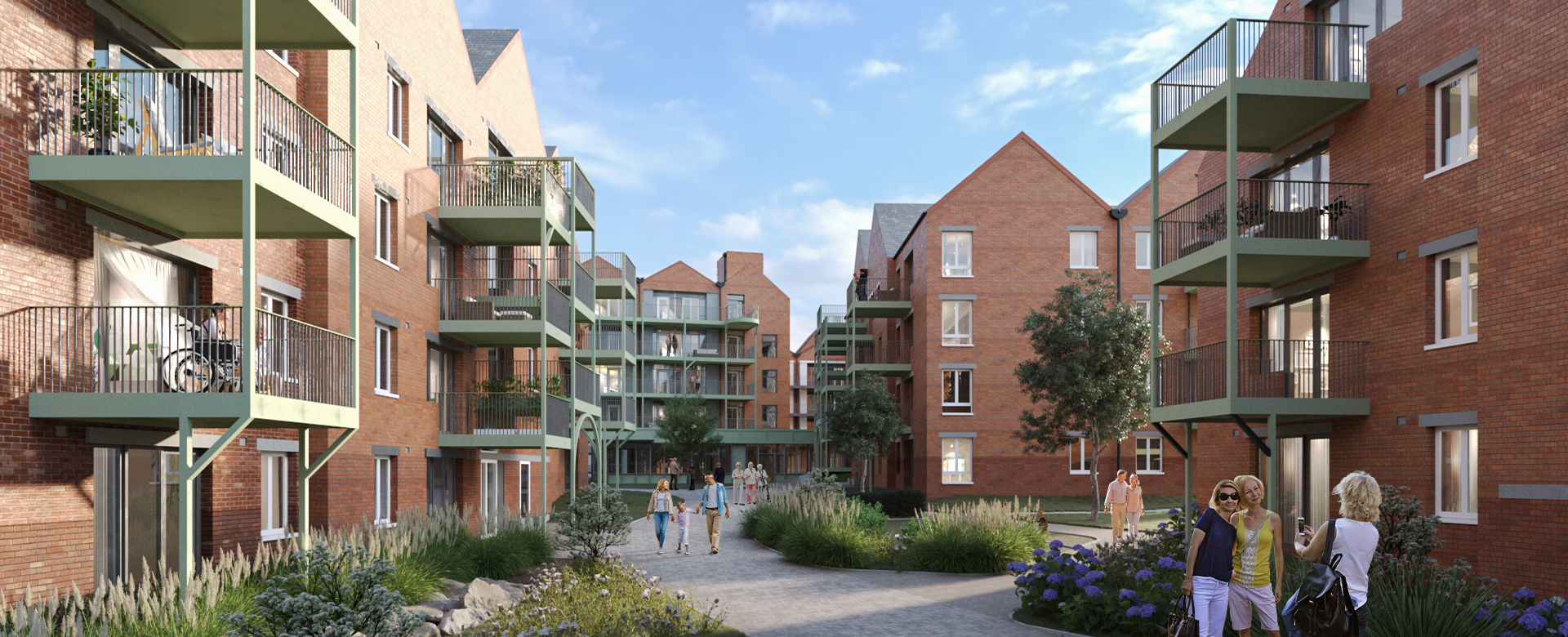
Did you know just over four million over 65s say it’s likely they will move away from the countryside and back to urban areas like cities and towns in the future, rising to almost five million by 2033?*
This shift in lifestyle is reshaping preconceptions of retirement and is poised to revolutionise our urban communities. Retirees, keen on proactive retirement planning, seek connectivity, an active lifestyle, and a central role in vibrant communities.
It's the Baby Boomers who are sparking this retirment trend. Born into the 60s era of counterculture and change, they’re not shy when it comes to trailblazing. This time around they’re bucking the trend of countryside living and being drawn back to town centres, with greater transport access and a sense of community enticing rural retirees back into the cities.

The Baby Boomers are coming to town...
The return of the Baby Boomers to our towns should be championed by high streets, businesses and urban neighbourhoods. The impact of their return would be phenomenal, adding up to the equivalent of an extra £7.7 billion a year injected back into the heart of our towns and cities.**
We asked 2,000 over 65s for their thoughts on connected areas and whether they’d look to move to one in the future. Our research has shown that those eyeing up a move to a better connected area are twice as likely to go to the cinema and a fifth more likely to eat out each month compared to those who want to retain their rural lifestyles. Our research also found that the majority (82%) of people think that older people are underestimated when it comes to how active and ambitious they are and over half (56%) say getting older has given them the freedom to have more fun.
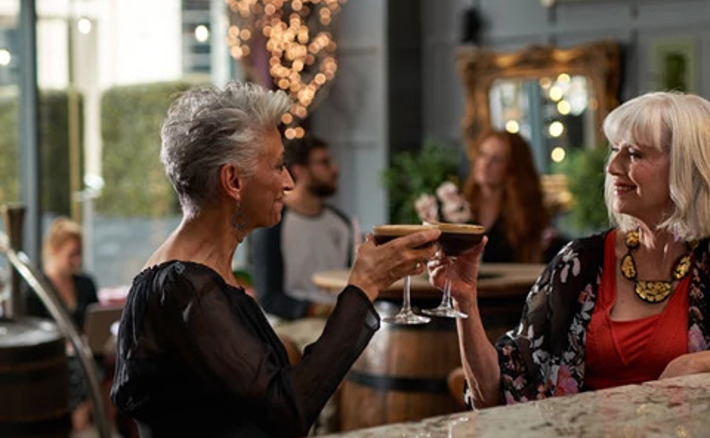
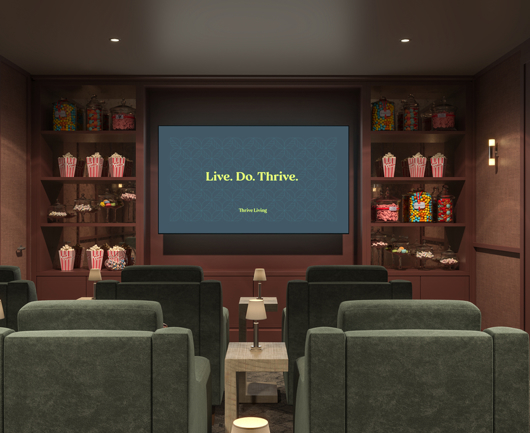
But can supply meet rising demand?
Yet, there currently isn’t enough age-appropriate housing to cope with increasing demand. This new trend, coupled with a rising population of over 65s, means that we need to act now to ensure that there is sufficient later living housing that supports the additional three million over 65s living in the UK by 2033.
We need an additional 50,000 new homes each year to cope with an ageing population alone.*** As people boomerang back to our towns and cities, we need to provide this generation with bustling communities supported by amenities and local transport that puts them at the beating heart of a city.
That’s why we’re backing the Associated Retirement Community Operators (ARCO)’s mission to create an Integrated Retirement Community (IRC) in every town and urging the government and local councils to plan for an integrated retirement community in every town to meet rising demand.
Integrated Retirement Communities (IRCs) are retirement housing which enable older people to lead the lifestyles they want to and are crucial when it comes to revitalising our urban communities.
They offer an integrated lifestyle with restaurants, bars, shops and cinemas with dedicated wellbeing and care, with friends, family and the local community able to take advantage of these amazing facilities too. This means more choice, more independence, better health and a bustling community for those who live there.
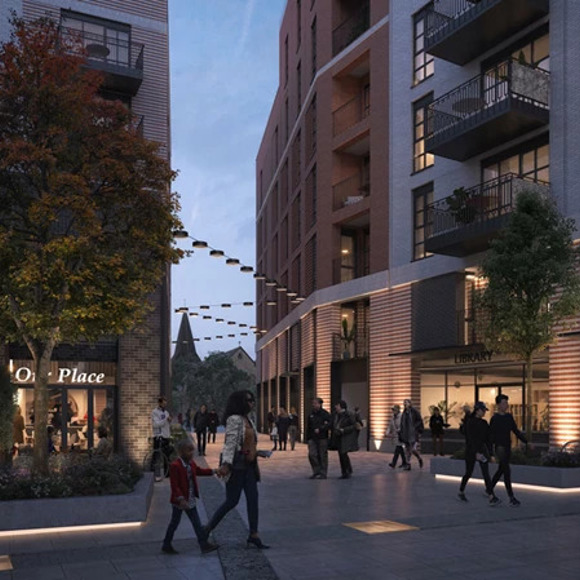
Our research shows one in five over 65s already have their eyes on moving to a more built-up area. And, even if they’re not moving now, the trend is set to grow with an ageing population.
Almost half (48%) of this generation say as they age, they are more likely to get the amenities that they need in an urban area. Now is the time to embrace change, but there needs to be more age-appropriate housing in order to do so.

Thriving Communities
Our brand-new concept for the retirement living sector, Thrive Living, reflects this trend, with town centre regeneration at its core. Integrated Retirement Communities, like our Thrive Living collection, are an attractive lifestyle proposition designed to support positive ageing, which represent a viable and appealing choice for older people. Thrive Living is for people who want to stay connected, sociable, and active as they age.
The first two developments are completing in 2025 at the heart of urban communities; Botanical Place will be in West Byfleet and The Wyldewoods will be in Chester, followed by Tunbridge Wells in 2026. Thrive Living responds to a new generation of older people with changing expectations and puts them back into the heart of communities.
Want to learn more about Thrive Living? Click here to explore more.
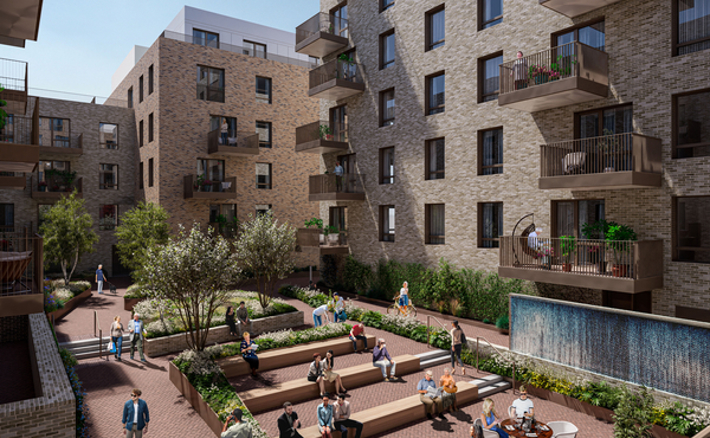
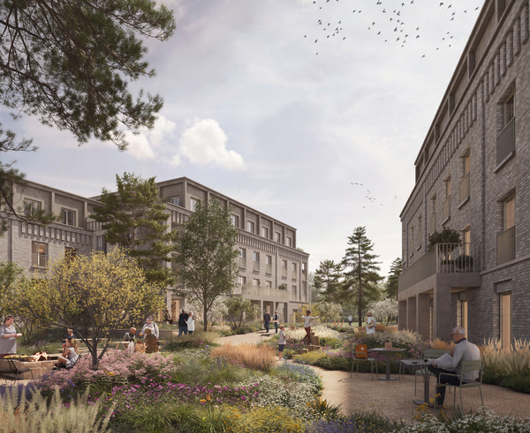
*Polling of 2,000 over 65s by Opinium for RVG, October 2023. 31% of over 65s (4.1 million) are likely to want or need to live in a connected area in future. Based on 2021 UK population estimates from the ONS. Principle projection – UK population in age groups
**Polling of 2,000 over 65s by Opinium for RVG, October 2023. Those that say they are likely to want or need to live in a connected in the future spend £155.68 spent per month on the following: cinema or theatre, sports, shopping, volunteering, hobbies, meeting with friends, going to parks and green spaces.
***The Mayhew Review: Future Proofing Retirement Living – Easing the care and housing crises, finds that the Government must build 50,000 new homes for older people each year to tackle the UK’s housing and social care crisis (November 2022)
